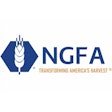
The U.S. House Agriculture Committee has passed the Farm, Food, and National Security Act of 2024, known as the 2024 farm bill, with a vote of 33-21. The $1.5 trillion bill saw support from four Democrats joining Republicans in advancing the legislation.
Key highlights of the bill include expanded support for farm commodities and a reduction in Supplemental Nutrition Assistance Program (SNAP) funding. The bill proposes the reallocation of nearly $20 billion, initially intended for "climate-smart farm practices," away from the Inflation Reduction Act.
The American Soybean Association (ASA) commended the House Agriculture Committee on the bill's passage. Josh Gackle, ASA president and a soybean farmer from North Dakota, expressed appreciation for Chairman Thompson's responsiveness to the concerns and needs of soybean farmers. He thanked Representatives Don Davis, Eric Sorensen, Sanford Bishop, and Yadira Caraveo for their support. Over the past two years, the ASA has advocated for enhancements to the farm bill to address the pressing needs of soybean farmers. The 2024 Farm Bill includes significant improvements to the farm safety net, investments in market expansion and diversification, and protection of vital programs like crop insurance and the soy checkoff. ASA emphasized that strengthening the farm bill is critical for the future of U.S. soybeans and expressed readiness to advance the bill as it moves forward in the legislative process.
The National Corn Growers Association (NCGA) also praised the committee's work, noting that many recommendations made by corn grower leaders are reflected in the legislation. NCGA President Harold Wolle highlighted the importance of advancing the farm bill through committee and expressed appreciation for the efforts of committee members and their staff. During the markup, corn growers supported several amendments to improve the farm bill, including an amendment on sustainable aviation fuel offered by Rep. Max Miller (R-Ohio) and a mandatory base acre update amendment led by Rep. Dusty Johnson (R-S.D.).
NCGA sent a letter to House Agriculture Committee members earlier in the week, outlining farm bill provisions important to corn growers, such as protecting federal crop insurance, bolstering U.S. international market development efforts, strengthening the producer safety net, supporting voluntary conservation programs, championing rural America initiatives, and providing a base acre update.
The National Association of Wheat Growers (NAWG) President Keeff Felty commended Chairman Thompson for moving the process forward and urged a bipartisan and bicameral approach to enacting a highly effective farm bill. Felty highlighted that the bill addresses several priorities NAWG has advocated for, including enhancing crop insurance, increasing Price Loss Coverage (PLC) program funding, prioritizing U.S. commodities in the Food for Peace Program, and doubling funding for the Market Access Program (MAP) and Foreign Market Development (FMD) program. He also thanked Congressman Mann (R-KS-1) for his amendment encouraging the Risk Management Agency to allow farmers to insure wheat enterprise units by fallow and continuous.
Felty emphasized the importance of bipartisan support for the farm bill to be successfully reauthorized and expressed NAWG's readiness to work with all stakeholders to ensure a strong safety net for producers.
American Farm Bureau Federation President Zippy Duvall also commented on the House Agriculture Committee's markup and passage of the farm bill, highlighting the significance of the legislation for all American families and urging continued momentum in the legislative process. He called for the Senate Agriculture Committee to follow the House's lead in advancing the farm bill.
The passage of the 2024 farm bill marks a critical step in addressing the needs of U.S. farmers and agricultural stakeholders, ensuring a robust safety net, and promoting agricultural growth and resilience.
















